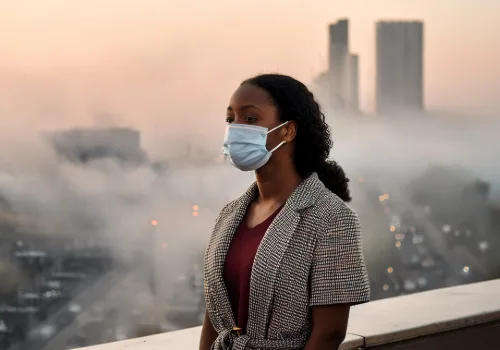
Lung cancer has long been linked to cigarettes, but today, more people who have never smoked are being diagnosed—and doctors are taking notice. Recent studies show that as many as 20% of lung cancer cases in the U.S. occur in non-smokers, especially among women and younger adults.
This shift challenges the old assumption that smoking is the only cause, highlighting other powerful risk factors that deserve attention.
What Causes Lung Cancer in Non-Smokers?
Even without cigarettes, several environmental, occupational, and biological factors can lead to abnormal cell growth in the lungs:
1. Radon Exposure
Radon—a radioactive gas that forms naturally in soil and rocks—can seep into homes through cracks and basements. Long-term exposure is one of the leading causes of lung cancer in non-smokers, according to the EPA.
2. Secondhand Smoke
You don’t have to light up to be affected. Inhaling smoke from others’ cigarettes exposes your lungs to many of the same carcinogens, raising cancer risk by 20–30% for non-smokers living with smokers.
3. Air Pollution
Fine particulate matter (PM2.5) from car exhaust, industry, and wildfires can lodge deep in lung tissue. The Bay Area’s periodic wildfire smoke events are particularly concerning for those with chronic respiratory conditions.
4. Genetic Mutations
Many non-smokers with lung cancer have specific gene mutations, such as EGFR, ALK, or ROS1. These changes cause cells to grow uncontrollably—and they can now be targeted with personalized therapies.
5. Workplace or Environmental Toxins
Asbestos, diesel exhaust, and other industrial chemicals still pose risks, especially for those who’ve worked in construction, transportation, or manufacturing.
Symptoms of Lung Cancer in Non-Smokers
Because most people don’t expect lung cancer without a smoking history, symptoms are often ignored or mistaken for something else—like allergies or infection.
Watch for:
- Persistent or worsening cough
- Shortness of breath
- Chest or shoulder pain
- Unexplained fatigue
- Coughing up blood
- Hoarseness or voice changes
- Unexplained weight loss
Pro tip: If symptoms last longer than three weeks—especially a cough that doesn’t improve—it’s worth scheduling an evaluation.
Early Screening & Detection Matter
Low-dose CT (LDCT) scans are currently recommended for people aged 50–80 with a significant smoking history. But as trends shift, many experts advocate expanding screening to include those with family history, genetic mutations, or chronic environmental exposure.
Early detection saves lives: lung cancer found at an early stage has a five-year survival rate above 60%, compared to less than 10% when caught late.
How to Lower Your Risk
- Test your home for radon — simple kits are widely available.
- Avoid secondhand smoke — make your home and car smoke-free.
- Check your air quality — limit outdoor activity on high-pollution or wildfire days.
- Maintain regular check-ups — talk to your provider about any chronic cough or chest symptoms.
- Eat a diet rich in antioxidants — fruits, vegetables, and omega-3s support lung health.
Expert Lung Cancer Care at BASS Medical Group
At BASS Medical Group, our multidisciplinary team—including pulmonologists, oncologists, radiologists, and thoracic surgeons—provides comprehensive lung cancer evaluation and treatment.
From low-dose CT scans and genetic testing to personalized treatment plans, we’re here to help you detect problems early and protect your long-term health.
Schedule a consultation today to discuss your risks or learn more about lung cancer screening options.
FAQ
1. Can you get lung cancer even if you’ve never smoked?
Yes. Up to 1 in 5 lung cancer cases occur in people who have never smoked, often due to genetics, radon, or air pollution.
2. What’s the difference between smoker and non-smoker lung cancer?
Non-smoker lung cancers are often linked to specific genetic mutations (like EGFR), which may respond better to targeted therapy instead of chemotherapy.
3. Should non-smokers get screened for lung cancer?
While current guidelines prioritize smokers, people with family history or environmental exposure should discuss screening with their doctor.



